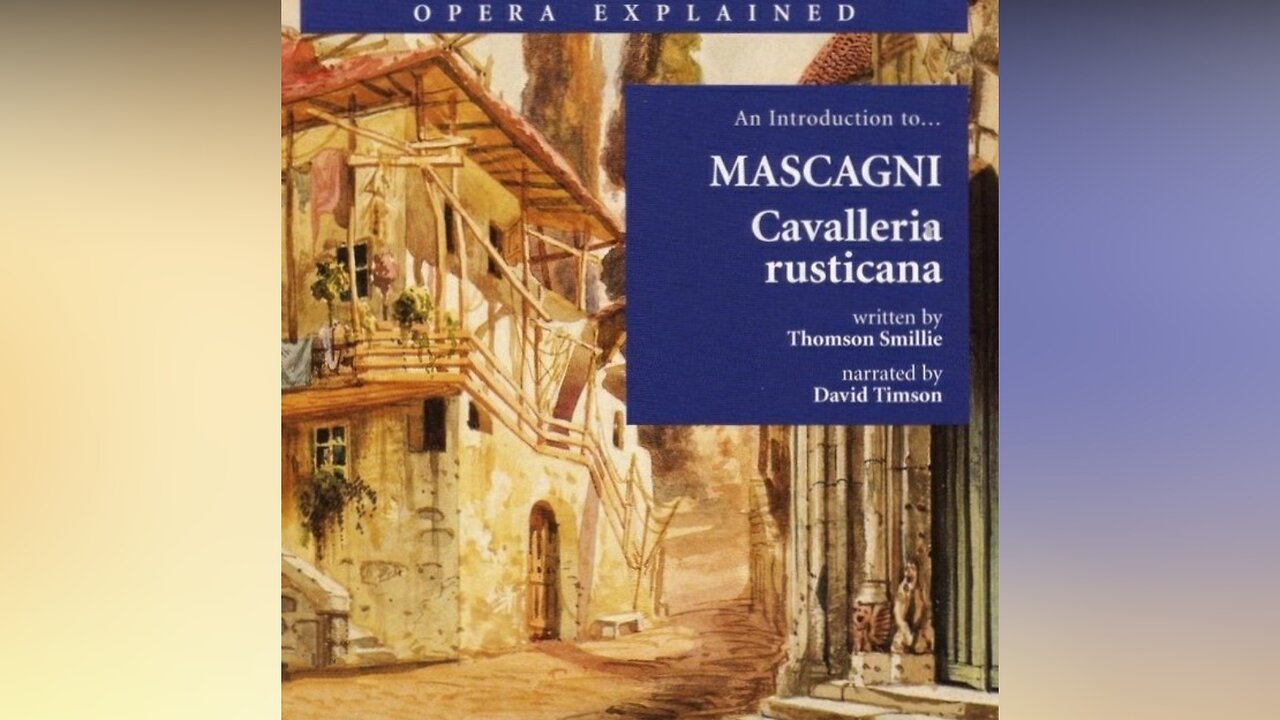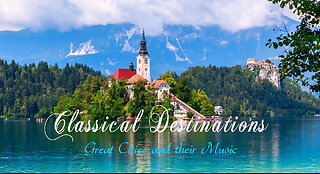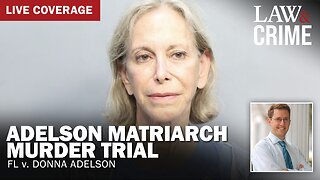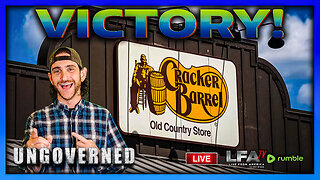Premium Only Content

Opera Explained | Cavalleria Rusticana by Mascagni (Audio)
"An Introduction to...Mascagni - Cavalleria Rusticana" written by Thomson Smillie, narrated by David Timson.
It is deeply appropriate that the apotheosis of the great film trilogy "The Godfather" should take place against the backdrop of a performance of Mascagni’s youthful masterpiece Cavalleria rusticana. The movie and the opera both distill that power, passion and blood-lust – combined with a deeply held sense of honour and chivalry, the ‘Country Code of Honour’ of the opera’s title – which characterise Sicilian life.
Cavalleria rusticana was written for a competition, and while it was seen at the time as promising a glorious future for both opera and the work’s gifted young composer, this proved to be a mirage on both counts. The style of opera that it represents so triumphantly is called the verismo – meaning ‘true-to-life’. Far from being a new dawn for opera it turned out to be a swansong, with Puccini’s later Turandot the last word on a tradition which lasted from the late 1500s into the early twentieth century.
Ever since audiences cheered Cavalleria rusticana on its first outing in 1890 it has been an operatic staple – and no wonder. It is freely adapted from a bodice-ripper of a short story, and its wonderful setting in rural Sicily offers opportunities for that combination of sin and sanctity that the Italians do so well. It also has a score of immense power and beauty. It is this last factor – the melodic wealth of Cavalleria rusticana – more than anything else that guarantees its lasting popularity. Several great arias and even greater choruses run through a score that is also characterised by impressive and original orchestral writing. Indeed, the two best-loved numbers are a chorus with solo overlays and a pure orchestral piece: the overwhelming Easter Hymn and the gentler but equally moving Intermezzo.
The story is the eternal one of love and jealousy. Turiddu (the tenor, of course) had once loved Lola, who is now married to Alfio. Then he loved Santuzza, but has dropped her and now wants Lola back. Santuzza is therefore a scorned woman whose fury, as the Bard might have said, surpasses that of Hell. When Santuzza realises that she has lost Turiddu to Lola she tells all to Lola’s husband Alfio, who has no choice under the rustic code of chivalry but to challenge Turiddu to a duel – with predictably fatal consequences. What makes all this such superb musical theatre is the combination of raw passion, melodic invention of extraordinary youthful vigour, and the device of playing out these animal instincts of lust, jealousy and revenge against the sacred pageantry of a small Sicilian village’s Easter celebrations.
Cavalleria rusticana shares a poignant characteristic with Leoncavallo’s Pagliacci – with which it is often paired in the theatre – in that it promised a glittering career for its young composer that never materialised. Although Mascagni lived on into World War Two he never repeated this triumph. His longevity, however, at least allowed him to make his own recording of the opera, extracts from which are included in this introduction to form an extraordinary link between our times and the long-vanished world of nineteenth-century Italian opera at its final glorious peak.
Tracklist:
Background
1. Introduction
2. History
3. The bel canto: Rossini, Bellini and Donizetti
4. Verdi
5. Puccini and the verismo school
6. Bizet’s Carmen
7. Mascagni
8. Mascagni’s other operas
Cavalleria rusticana
9. Prelude and Sicilian setting
10. Beginning
11. The Easter Hymn
12. Sin and sanctity
13. Santuzza confronts Turiddu
14. Intermezzo
15. Turiddu drinks and Alfio makes his challenge
16. Turiddu says goodbye before the duel
Performance:
- Santuzza, a peasant girl: Stefka Evstatieva, soprano
Lina Bruna Rasa*
- Turiddu, a young soldier: Giacomo Aragall, tenor
Beniamino Gigli*
- Mamma Lucia, mother of Turiddu: Alzbeta Michalková, contralto
Giulietta Simionato*
- Alfio, a village carter: Eduard Tumagian, baritone
Gino Bechi*
- Lola, wife of Alfio: Anna di Mauro, mezzo-soprano
Maria Marcucci*
- Villagers and Peasants
Slovak Philharmonic Choir Czecho-Slovak Radio Symphony Orchestra (Bratislava)
Alexander Rahbari
La Scala Orchestra and Chorus, Milan*
Pietro Mascagni*
-
 25:19
25:19
Adaneth - Arts & Literature
1 month agoClassical Destinations I | Bonn & Berlin: Beethoven (Episode 12)
61 -
 LIVE
LIVE
Badlands Media
9 hours agoBadlands Daily: August 27, 2025
2,436 watching -
 LIVE
LIVE
Law&Crime
1 hour agoLIVE: Adelson Matriarch Murder Trial — FL v. Donna Adelson — Day 4
335 watching -
 LIVE
LIVE
Major League Fishing
5 days agoLIVE! - Fishing Clash Team Series: Challenge Cup - Day 4
110 watching -
 1:03:42
1:03:42
Crypto Power Hour
2 hours agoWhat Coins Are The Backbone of The New Digital Revolution?
555 -
 LIVE
LIVE
LFA TV
3 hours agoLFA TV ALL DAY STREAM - WEDNESDAY 8/27/25
5,700 watching -
 1:22:55
1:22:55
Game On!
18 hours ago $2.62 earnedBREAKING NFL NEWS: Taylor Swift and Travis Kelce Are Engaged!
29.9K12 -
 41:04
41:04
Coin Stories with Natalie Brunell
1 day agoCooking, Culture & Crypto: Norma Chu’s Food Empire Turns Bitcoin Treasury
24.8K -
 LIVE
LIVE
JuicyJohns
1 hour ago $0.15 earned🟢#1 REBIRTH PLAYER 10.2+ KD🟢
41 watching -
 1:21:19
1:21:19
JULIE GREEN MINISTRIES
3 hours agoDIRTY POLITICIANS WILL BE ARRESTED AND REMOVED FROM POWER
63.3K188